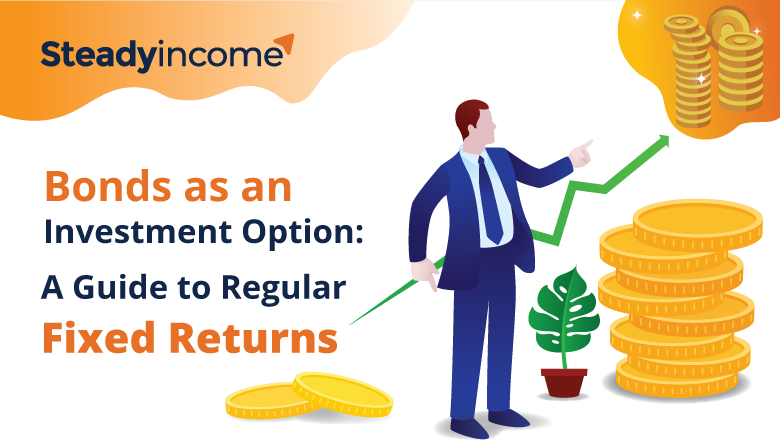Bonds as an Investment Option: A Guide to Regular Fixed Returns

In the realm of investment options, bonds have long been recognized for their ability to provide investors with regular fixed returns. Whether you are a risk-averse individual seeking stable income or a prudent investor looking to diversify your portfolio, bonds offer an attractive avenue for generating steady returns. In this blog post, we will explore the concept of bonds, discuss their advantages as an investment option, and provide insights into how they can offer regular fixed returns.
Understanding Bonds
Bonds are debt instruments issued by governments, municipalities, corporations, or other entities to raise capital. When you invest in a bond, you essentially lend money to the issuer in exchange for regular interest payments, known as coupon payments, and the repayment of the principal amount at the bond's maturity. Bonds have a predetermined maturity date, typically ranging from a few months to several years, and their interest rates are fixed or variable, depending on the type of bond.
Advantages of Bonds as an Investment Option
- Regular Fixed Returns: One of the key advantages of investing in bonds is the assurance of regular fixed returns. The interest payments, or coupon payments, are typically paid at predetermined intervals, such as annually, semi-annually, or quarterly, providing investors with a steadyincome stream. This makes bonds particularly appealing for individuals who rely on a regular source of income or those who prefer stability in their investment returns.
- Diversification and Risk Mitigation: Bonds offer diversification benefits within an investment portfolio. When combined with other asset classes, such as stocks or real estate, bonds can help mitigate risk by providing a more stable and predictable return. The inclusion of bonds can help balance the overall risk profile of a portfolio, especially during periods of market volatility.
- Capital Preservation: Depending on the creditworthiness of the issuer, bonds are generally considered less risky than other investment options. Government bonds, for instance, are often regarded as the safest, as they are backed by the government's ability to tax or print money. High-quality corporate bonds also carry lower risk compared to equities. This capital preservation aspect makes bonds an attractive choice for conservative investors who prioritize the security of their investment capital.
- Income Stream and Retirement Planning: Bonds can serve as a reliable income stream, especially for individuals planning for retirement. By investing in bonds with staggered maturities, investors can create a bond ladder, where bonds mature at different intervals, providing a consistent source of income over time. This income can supplement other retirement savings and help meet financial obligations during retirement.
Conclusion
Bonds offer investors the opportunity to generate regular fixed returns while preserving capital and diversifying their investment portfolios. With their predictable income stream and relative stability, bonds are an attractive option for risk-averse individuals, retirees, and those seeking consistent cash flow. However, it's important to conduct thorough research, evaluate the creditworthiness of the issuer, and consider the prevailing interest rate environment before making investment decisions. Bonds can be purchased through brokerage firms or directly from the issuing entity, and it is advisable to consult with financial advisors to ensure alignment with your investment goals and risk tolerance. By incorporating bonds into a well-rounded investment strategy, individuals can enjoy the benefits of regular fixed returns while maintaining a balanced approach to wealth accumulation and preservation.

